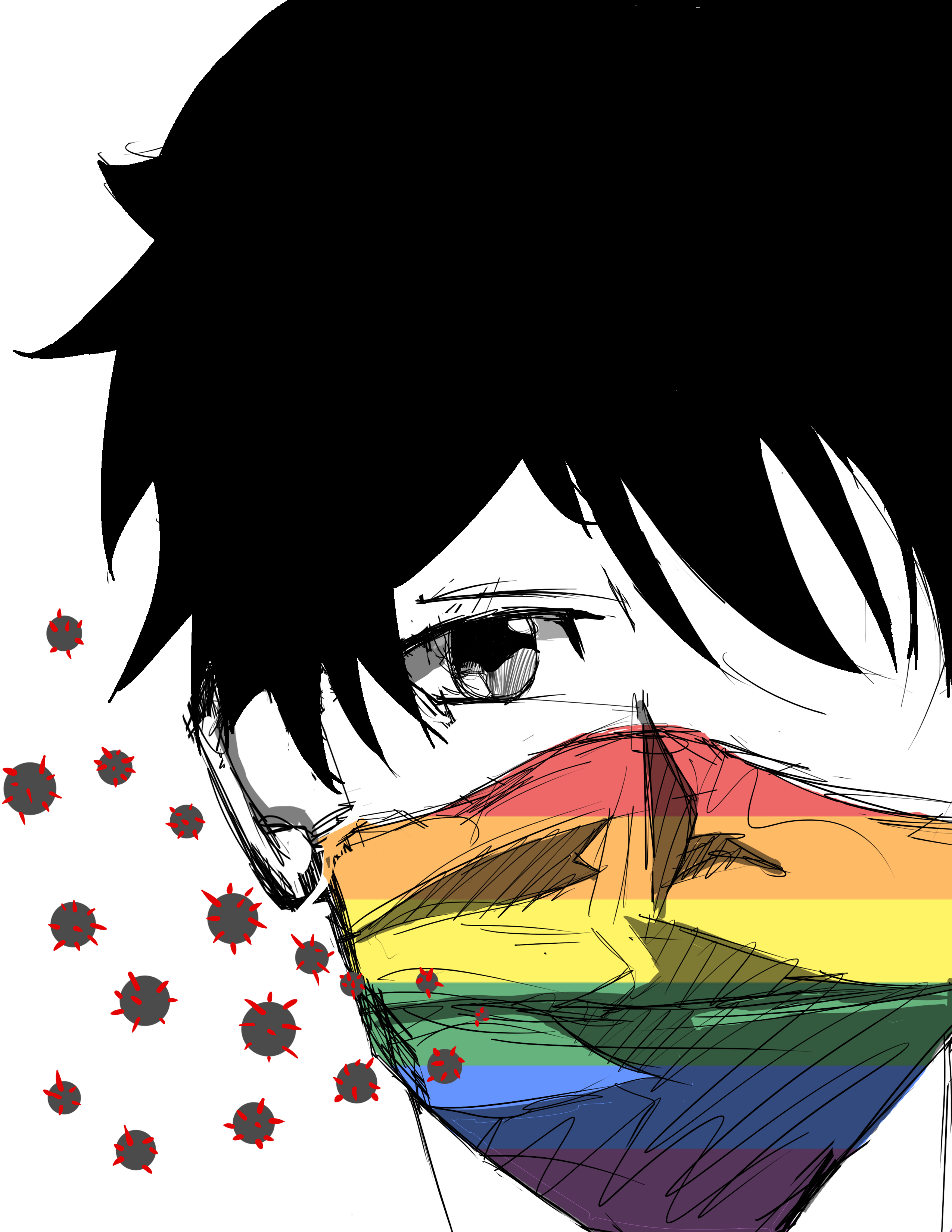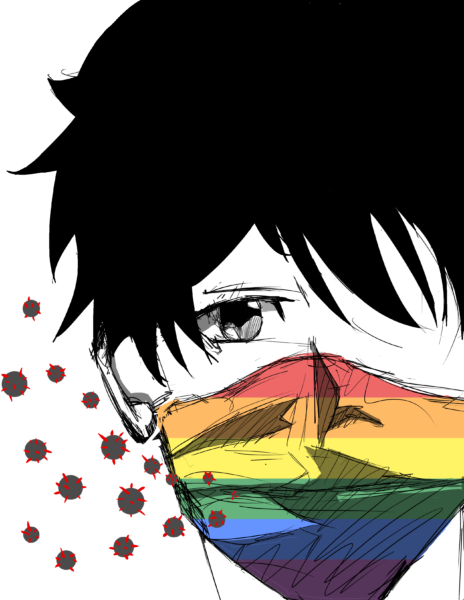

In the 1980s, the world battled an epidemic of not only AIDS, but hatred toward the LGBTQ community. As misinformation spread, homophobia grew and took many forms: slurs, bullying and discrimination in workplaces. The world had focused its attention on pointing blame and antagonizing the gay community rather than focusing on the prevention of AIDS via testing and practicing safe sex. As monkeypox cases rise around the world, history repeats itself.
Monkeypox originated in Africa and has symptoms of whole-body rashes accompanied by aches and often a fever. Monkeypox has spread to 94 countries and there are more than 16 thousand cases confirmed in the U.S. alone. The majority of the cases have been gay and bisexual men, but they are not the sole carriers of the virus. Nevertheless, many took advantage of the situation to circulate their homophobic beliefs and blame the queer community for monkeypox.
One would hope that after more than 40 years after the outbreak of HIV, society would eventually secure everyone’s rights regardless of how they identify. But that is still not reflected in the way many people across the nation have responded to monkeypox.
For example, Professor Timothy Farage at University of Texas at Dallas, a more progressive college, commented “Can we at least find a cure for homosexuality?” As teachers speak out on their own homophobia, more students may feel comfortable acting on their homophobia, creating a more toxic environment. Many queer students already suffer in the school setting due to the discrimination. A 2019 survey held by GLSEN measuring over 16,700 students of all ages attest to the fact that discrimination is present, reporting that 59% of queer students felt unsafe in their school environment. Monkeypox creates an even bigger target on all LGBTQ students, especially those who may have gotten monkeypox or taken time off school. Rumors about these students could circulate, subjecting them to isolation at school.
When people are young, they are more prone to being influenced by what they see in the media. This risks more cases going undiagnosed because the negative associations with monkeypox will ward them away from testing. With a lack of testing and proper precautions, many people may continue to spread it under the presumption that they have not contracted the virus.
A shadow of trauma lives in the survivors of the AIDS epidemic, as they endured countless threats and assaults. Today, those who are finally feeling accepted in their skin are now facing dangers similar to what the previous generation has endured. This is anything but fair. The hatred monkeypox brings in today’s society is far more fatal than the virus itself. The LGBTQ community is not responsible for monkeypox and the world needs to grow beyond that narrative in order to create a safe community for the young generations to thrive in.



